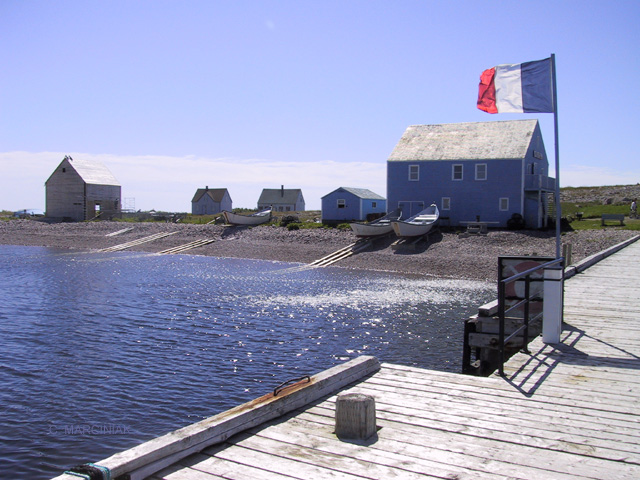
And we can avoid the long plane trip!
Suggestion for celebrating the anniversary of the birth of the first state fully heir to the Enlightenment: Visit St.-Pierre and Miquelon next July 14, a collectivité territoriale, a part of metropolitan France, just off the southern coast of Newfoundland Island.
Years ago I had heard that bread was flown in each morning from Paris, to be sold at the same price as in the capital, just to maintain the strength of the islands' ties to the rest of the nation, since they are now the last relic of what was once a French empire which included most of North America.
After France lost Quebec [all of Canada] to the British during the Seven Years War, Paris managed some deft negotiating in 1763 to keep this sliver of its colonial empire to give its fishermen a safe haven.During Prohibition, the archipelago became a way station for Canadian liquor smuggled into the United States. Virtually every basement was converted into a warehouse for bootleggers, and Al Capone set up shop at the Hotel Robert, where his straw hat still graces a small museum.
Capone came here to solve a problem. The wooden whiskey crates that were to be unloaded near Fire Island made too much noise when they knocked against each other, tipping off the feds. Capone decided to discard the crates for jute sacks and straw, leaving behind 350,000 cases a year here that stimulated an odd housing boom one cabin outside town made completely of crates is still known as "Cutty Sark villa."
When the Volstead Act was repealed in 1933, truckers held a mock funeral.
Not much has happened here since, although the archipelago was the site of a World War II military landing that arguably spelled the beginning of the end for the Vichy government. On Christmas Eve 1941, Free French fighters aboard three corvettes and a submarine landed in St. Pierre without bloodshed. They held an election, and the people voted to boot out the local Vichy authorities.
[photo from C. Marciniak]
Is it hard to get to the islands?